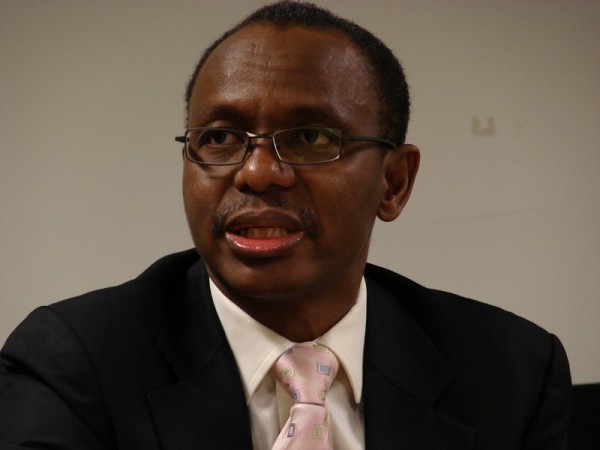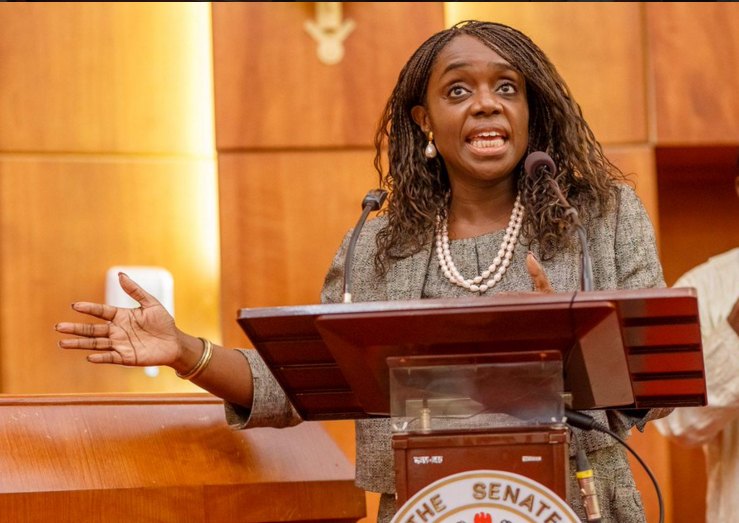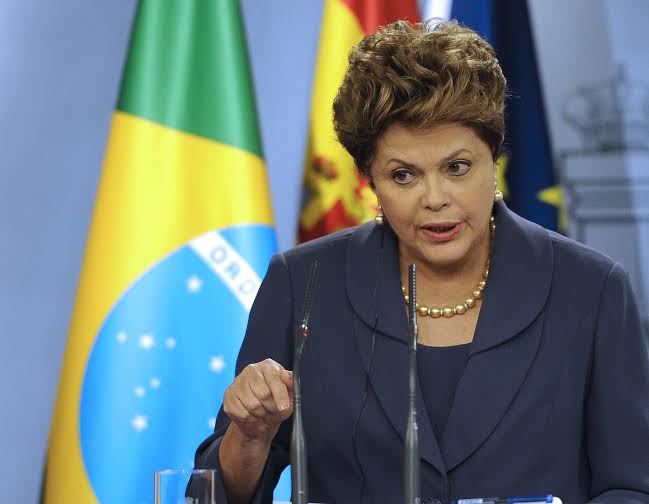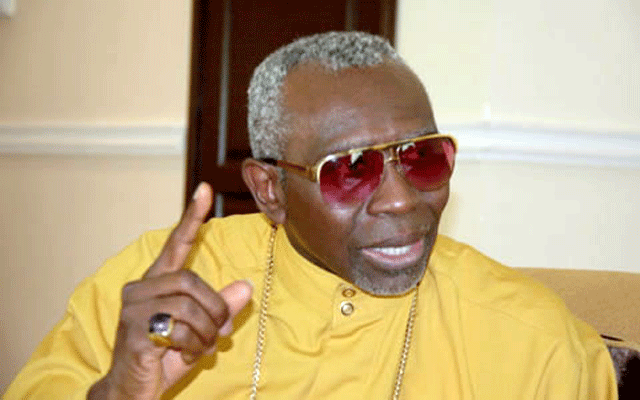The proposed Kaduna State new law on religion is generating controversy. This is expected. Any law that tries to regulate the exercise of religion in a society with deep religious consciousness, like Nigeria, is bound to generate strong disputation. This is more so in an environment of distrust, discredit and distemper. As expected, people have taken different positions for and against the law without reading it. The typical Nigerian pastime of taking strong positions without the assistance of facts and logic is enhanced in the era of instantaneous communication through tweets or blogs. So we blow hot and dusty airs and befog our way through the challenge.
I have gone through the proposed law. Two things stand out for me about the law. Yes, there is a reason for venturing to regulate the exercise of religion in Kaduna State. The perennial incidence of religious violence and the recent violent clampdown on members of the Shiites provide a background of security anxiety. The second point is that that law is a thoroughly inept and hugely presumptive response to an eminent, but in no way unique, social problem. All said and done, the promoters of that law are either bereft of meaningful insights into the essence of freedom of religion or in pursuit of mischief. I will believe the former for I don’t think a wise administrator would play such dangerous gambit but for some form of shortsightedness. The proposed law is plain error that can be reversed as soon as possible.
The rest of this piece will show that the proposed law violates the freedom of religion in clear and fundamental ways that no reasonable administrator or court should accept it as a legitimate regulation of the exercise of the freedom of religion. It is an unreasonable and illegal attempt to regulate exercise of freedom of religion.
Disproportionate Response
The main purpose of the law is to regulate religion in Kaduna State by requiring strict licensing for all forms of religious preaching. Bear in mind that religious preaching is a form of religious speech. The law makes it a criminal offence for any person to preach without a license. Such an offender could be imprisoned for two years or fined N200,000. The law does not prohibit certain kinds of religious preaching (as would be expected if the problem is some kind of violent preaching) but generally requires that only those licensed to preach are authorized to speak. The prescribed license is granted by an inter-faith committee composed almost entirely by nominees of the Governor of Kaduna State. The ‘Governor’s committee reviews the recommendation of another committee of either the Christian Association of Nigeria (CAN) or the Jama’atuNasril Isam (JNI) for Christians and Muslims respectively.
Advertisement
The primary problem with this response is that it is an unreasonable response to any possible risks that religious expression may pose. The principle of regulation, whether it is finance, toxics or religion, is that response must be proportionate to the perceived risks. Now what are the possible risks associated with religious expression in Kaduna State? They are evident in the history of the state. The main risk is religious violence arising from hateful and inciting religious speeches and sacrilegious practices. The proposed law could have targeted its intervention by focusing on those prohibiting forms of preaching that clearly pose threat to peace and security. As I will argue later, such targeting needs further to be secular in purpose to pass the constitutional muster of legality. If a regulatory intervention is overbroad to the extent that it overregulates a whole sphere of activity without necessary discrimination it become unreasonable and therefore subject to nullification by the court. A regulator ought to exercise its powers to effect a public good or deter a public bad narrowly. Therefore, the proportionality of action to threat is fundamental to intelligent regulation.
Obviously, the Kaduna law wants the Government to determine the entire sphere of religious preaching. On what basis should the government be responsible to determine who enjoys the right of religious speech and who does not, when such speech does not pose any threat to security in the state? It is totally unreasonable to expect that every form religious preaching -religious speech- threatens the peace or would threaten the peace. Therefore, it is totally unreasonable to attempt to regulate the entire gamut of religious preaching. This is utterly unreasonable.
Where there is no harm there should be no prohibition. Where there is harm prohibition should be targeted to the possible harm such that the regulatory action is justified by credible threat or risk. The US Supreme Court laid the clear principle of proportionality in the case of Sherhert v. Verner 374 U.S. 398(193). The court laid the rule that a law that interferes with the enjoyment of freedom of religion can only be justified if the state has a compelling interest in its application and such interest cannot be achieved by any other means except by enacting the law. What is that compelling interest that the Kaduna State government has that cannot be achieved except every preacher obtains an approval from the inter-faith committee? Clearly, every such interest, especially the interest of securing peace and order in the state, can be attained without this draconian law. We don’t need to require preachers to have license to control inciting preaching or violent action.
Advertisement
The Principle of Secular Purpose
Section 10 of the constitution begins the protection of the freedom of religion by providing that neither the federal government not the government of the state in Nigeria can establish any state religion. This is the so-called principle of secularity. Many Nigerian religious and legal theorists debate whether this section made Nigeria a secular state in the proper sense of secularism. The non-secularists argue that section 10 simply restrained the Nigerian state from projecting one religion as the official religion of the state but does not intend that the Nigerian state should be completely agnostic of religious values and practices. The secularists argue that the constitution makes Nigeria a secular state that should have no place for religion. It builds an inseparable wall between the church (mosque) and the state.
This debate seems interminable and I don’t intend to settle it in this piece. But what is clear is that the non-establishment clause of the constitution (that is Section 10) has an irreducible minimum. Whether we interpret it to mean strict secularism or religious neutrality, that section places an obligation on the government not to intervene deeply in religious affairs. The wordings of Section 10 of our constitution is similar to the non-establishment clause in the US constitution that states “Congress shall make no law respecting the establishment of religion…”. The courts have interpreted that to have three important implications. First, any intervention that affects exercise of religion must have a secular purpose. The government should not make law aimed at regulating religion. The wall of separation should operate such that neither government nor religion should interfere in each other’s domain. Secondly, where in pursuit of secular purpose the law affects freedom of religion there must be a compelling government interest. And thirdly, such interests must be such that could not be realized without such interference. That is, the law should not be too burdensome on religious practice.
Unfortunately, the Nigerian Supreme court have not had cause to fully adjudicate the full implication of section 10. But the US Supreme Court has done so. In Allegheny County v, Greater Pittsburgh ACLU 109 U.S. 493 (1988), Justice Blackmun, writing for the court, reviewed previous decisions in such cases like Everson v. Board of Education and Lemon v. Kurtzman, and opined that “Under the lemon analysis, a statute or practice which touches upon religion, if it is to be permissible under the Establishment Clause, must have a secular purpose, it must neither advance or inhibit religion in its principal or primary effect; and it must not foster an excessive entanglement with religion”. This is the three-pronged test for Section 10 compliance, irrespective of the theory of non-establishment we accept.
The proposed Kaduna law is not focused on a secular purpose. It is aimed at regulating the two religions. It doe not pretend that its only purpose is to regulate Christianity and Islam in the state. Section 10 of the constitution that prohibits the government from establishing any religion discourages government from dabbling into religion beliefs and practices. Providing for how religious people should engage in one of the critical forms of religious expression- preaching -is a prohibited headlong plunging into the waters of religion. If the law addressed a secular purpose like the level of noise permitted in a neighborhood and consequently affected religious worship, it would have been a pursuit of secular purpose and the only question would have been whether the law laid excessive burden on religious belief and practice. In this case the proposed law directly regulates religious practice. It is not a reasonable response to a social problem. It is a wholescale regulation of religion. This contradicts Section of the Constitution.
Advertisement
The Free Exercise of Religion
The proposed law does not pay serious consideration to the real essence of freedom of religion, which is the right of free exercise. The freedom of religion has now become customary international law. This means that the obligation to protect and guarantee to everyone the freedom of religion cannot be validly excused by national laws. Nigeria, like other countries, have recognized the freedom of religion in its constitution, clearing any huddle to its enforcement by courts. Section 38 of the constitution guarantee the freedom of religion of every citizen and resident of Nigeria in the terms of “freedom of thought, conscience and religion, including freedom to change his religion or belief, and freedom (either alone or in community with others, and in public or in private) to manifest and propagate his religion or belief in worship, teaching, practice or observance”.
The history of the struggles for freedom of religion enlightens us on what the ‘free exercise clause’ means. The fight between the dogmatist Christians and enlightenment thinkers lies at the heart of the modern democratic state. The enlightenment tradition which is the basis of Westphalian state replaces religious feud with tolerance. The doctrine of religious tolerance championed by philosophers like John Locke and Jean Jacques Rousseau and statesmen like James Madison and Thomas Jefferson established the link between conscience, thoughts and religion as the fundamental fact that the proper religion of every man or woman should be left “to conviction and conscience of every man”. Every man or woman should also be allowed to determine the appropriate form to practice that religious form.
Free exercise of religion requires that the state does not put any obstacle or impediment in the exercise of the freedom of religion. The state does not need to facilitate freedom of religion but it must not impede it. The doctrine of free exercise therefore guarantees to every person the right to determine what beliefs he or she holds and liberty to hold such beliefs and practice them in company of other believes. The trend of judicial articulation of the free exercise has always prioritized freedom of though and conscience over religious practices. The argument here has been that the freedom of though and conscience does not entertain any derogation. It is the most fundamental of component of freedom of religion. Practices can be regulated as long as the government pursues secular purpose and does not unduly restrain the practice of religion. As the US Supreme Court puts it in Cantwell v. Connecticut 310 U.S 296 (1940), the free exercise clause “embraces two concepts, – freedom to believe and freedom to act. The first is absolute but, in the nature of things, the second cannot be. Conduct remains subject to regulation for the protection of society…. In every case the power to regulate must be so exercised as not … unduly to infringe the protected freedom”.
If you consider the requirement that every would be preacher of Islamic or Christian religion must seek and obtain a license from the state government, then it becomes clear that the proposed Kaduna law “infringes the protected freedom”. It limits the exercise of freedom of religion to the extent that anyone who does not secure a license commits an offence. The requirement of licensing is an actual censorship of belief which violates the inviolable freedom of conscience and thought. On what basis would a preacher be deprived of license to preach except that his beliefs are considered unpopular or unconscionable? When the freedom of religion is so constrained by the view of the majority or the imprimatur of the ecclesiastic or secular authority, then the inviolable freedom of belief, though and conscience has been violated.
Advertisement
Worst case, the proposed law does not provide any intelligible principles for its fanciful inter-faith committee to scrutinize and approve applicants for preaching license. This makes t totally arbitrary. Such arbitrariness is damaging to the free exercise of religion.
Unequal Protection
The proposed law violates the guarantee of equal treatment for religious believers. Another important principle of freedom of religion deriving from both the non-establishment and free exercise clauses is the prohibition against privileged or unfavorable treatment of some religious believers. If we treat religious groups differently on the same issues, we are violating the freedom of religion. By the proposed Kaduna law, members of the CAN and JNI committees that will make recommendation and the inter-faith committee are adherents of some religious beliefs. To ask them to determine whether a person who shares different religious beliefs should be granted license to exercise his or her religious beliefs is to privilege the religious beliefs of members of the committees and disfavor the religion of the applicants.
Advertisement
Perhaps, the promoters of this law could not see this problem because they think of religious beliefs in terms of two monolithic religions- Christianity and Islam. But the fact is that the freedom of thought, conscience and religion is not guaranteed to adherents of mainstream or fringe Christianity or Islam. It is guaranteed every person and for every religious belief, no matter how heretical. It is guaranteed to the mainstream believer as well as the fringe or nutty believer. Unless the adherents of such religion act in a manner that violates a ‘secular and significant government interest’ there is no reason to place restriction on their exercise of freedom of religion. Conceivably, there are many Christian groups that may not recognize CAN because their core values diverge fundamentally from those of members of CAN. If it falls on a CAN committee to determine whether members of these groups can practice their religion, then the law has discriminated against them. Discrimination against religions may not be express in the law but actual in its administration.
The Kaduna law also discriminates against religious groups by singling out Christian and Islamic religions for regulation. This could be interpreted in one or two way. It could be that whereas adherents of other religions need not apply for license to preach, members of the Christian and Islamic religion would need to be licensed to preach. Or it could be understood to means that only adherents of Christian and Islamic religion are recognized in Kaduna State, such that all other forms of religions are otherwise outlawed. This second reading will be totally abhorrent. So, we could take it that the promoters of the preaching law intended to have adherents of Christian and Islamic religion subjected to licensing before they can practice their religion. This is discriminatory as it places additional burden on adherents of Christianity and Islamic which is not placed on adherents of other religions.
Advertisement
The major error of the law is to presume that CAN and JNI captures the entire gamut of religious beliefs. There is just no reason to ask a committee of CAN and JNI to recommend who should be licensed to preach. Recognizing that preaching is the essence of religious belief and practice, it amounts to toll-gating access to freedom of religion.
Freedom of Speech
Freedom of religion is akin to freedom of speech. Expression of religious beliefs is a kind of speech. It is not acceptable to constrain or hinder exercise of speech except there is an overwhelming threat to other rights. And when such threat exists the government usually resorts to criminal laws that address secular criminal offences like defamation, riots or criminal assault. The government does not address such threat by proscribing free speech. If there are instances of violence arising from inciting preaching the government could criminalize incitement to violence through religious preaching and other forms of speech. Enough laws exist on the statute books to deal with this. And the new administration with its developmental zeal could prosecute inciters. If new and more effective laws are needed they can enact such laws in line with the principle of generality, secularity and proportionality. Inhibiting religious preaching in the manner that the law proposes contradicts freedom of speech and expression.
Advertisement
Conclusion
Basically, there is no reason to enact the proposed Kaduna State Religious Preaching Law. It does not address any significant threat that cannot be addressed utilizing laws that pursue secular aims like the penal code. In fact, ironically, if the Kaduna government is anxious about security situation, then the law has not addressed it. That law is totally remised on that point. Apart from illegally restricting the playing of religious cassettes and CDs it does not advance security and peace in Kaduna State. But it shreds freedom of religion and unwittingly creates a nursery bed for religious crisis.
It should be pulled off the table.
Dr. Amadi is a lawyer and policy and development strategist
Views expressed by contributors are strictly personal and not of TheCable.
Add a comment







